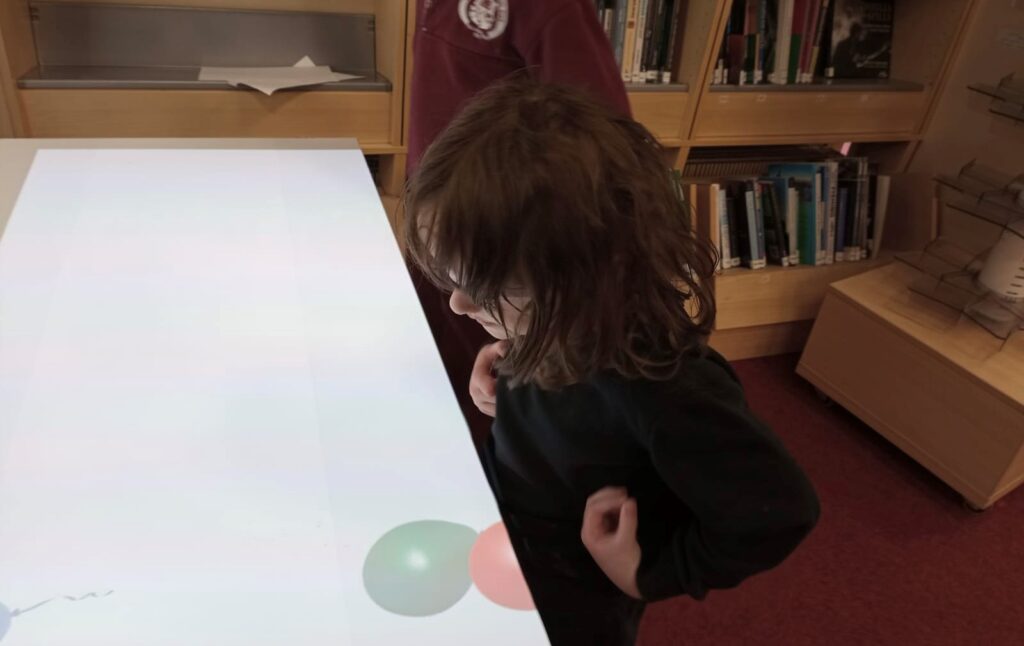There are plenty of options for activities schools can do for SEN students. Sensory activities are a great option. The Happiness Programme is an interactive light projector that features over 80 sensory games and activities. It uses interactive light technology to provide a sensory experience for those who use it. It’s a specialist piece of equipment designed to bring joy and happiness and is proven to have a hugely positive impact on those that use it.
Newcastle West library is fast developing links with the autism spectrum disorder – or ASD – community, drawing in people from beyond the town of Newcastle West and enabling the library to expand and grow as a result.
We spoke to Liam Dunne, Library Assistant at Newcastle West library, to find out how the Happiness Programme was supporting both the library team and the local community.
Q. Tell us about the library and how you’re using the Happiness Programme?
“We’re a public library and act as a community hub. We serve a very diverse community from the general public and families to school groups, local care services and those with special educational needs.
We joined the Happiness Programme in the autumn of 2021 and it’s been hugely successful. We started out with a simple approach – it would be made available all of the time, it would be prioritised for those with cognitive and physical needs and we would also prioritise ad-hoc sessions over those which might be pre-booked.
Once the projector arrived at the library, it didn’t take long for the community to start using it and word of mouth and social media really helped to draw people into the library. Word spread very quickly.
We found posting images to social media seemed to reach people very quickly and is something we’ve done regularly ever since”.
Q. Who is benefiting most from the interactive projector?
“Whilst we do have older people’s care services – like local care home residents – using it, including those living with dementia, we’ve found it’s been particularly successful in drawing in people from the ASD community.
We’ve quickly built-up regular visits from all 5 local primary schools who bring their SEN and ASD pupils and we’re expanding this all the time with groups and schools from further away.
We’re the only library within the west limerick area that has the Happiness Programme and so it’s created a real point of differentiation for us as a library”.

Q. How does the library team use it?
“As a library team we’re really proud to have it.
The staff have been trained on how to use it allowing us to run short handovers with our service users before each session. We’re also able to signpost people towards it when we see people walk through the door who might benefit from playing on it.
We’ve been careful where we’ve placed it too – we haven’t hidden the projector away but instead have it within sight of our front desk. This way it allows us to place those visiting the library – carers, family members or friends – to take control and run the session with us in easy reach if they need some help”.
Q. How do you find the interactive projector to use and what’s the feedback?
“It’s very user friendly and the remote is great as it helps the parents of children with ASD to lead sessions. We get lots of feedback from parents to say how great it is.
In the 9 months we’ve been subscribed to the Happiness Programme, we’ve never had any negative feedback. The projector is proving very popular and we’re getting people returning week after week. And this is driving referrals”.
Q. Any final words?
“Yes – the library has grown as a result of having it. We’d highly recommend it”.

Copyright © 2021 Social-ability. All Rights Reserved.